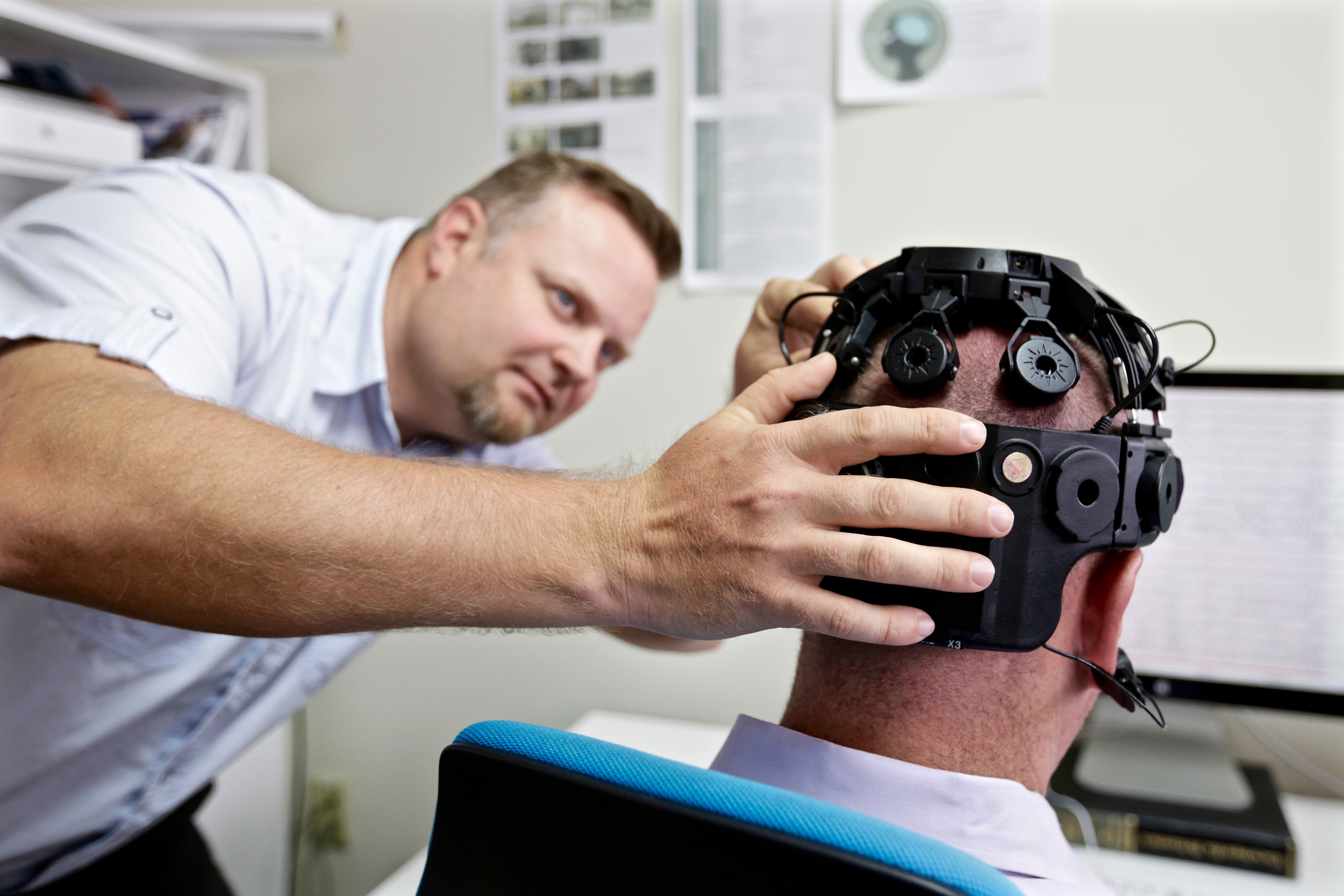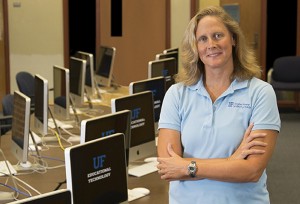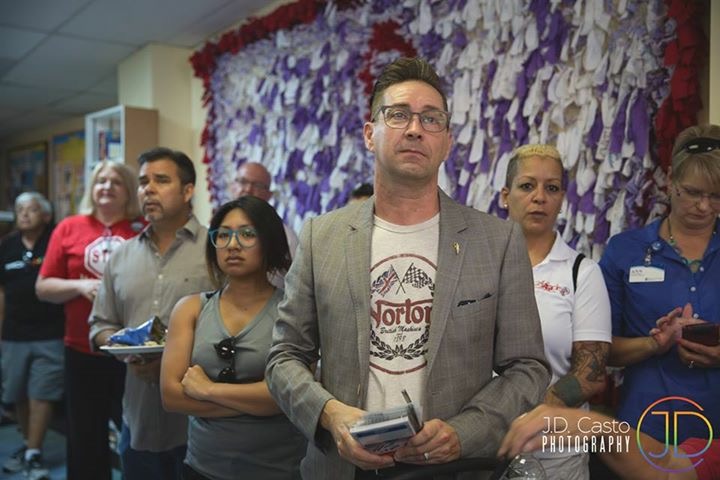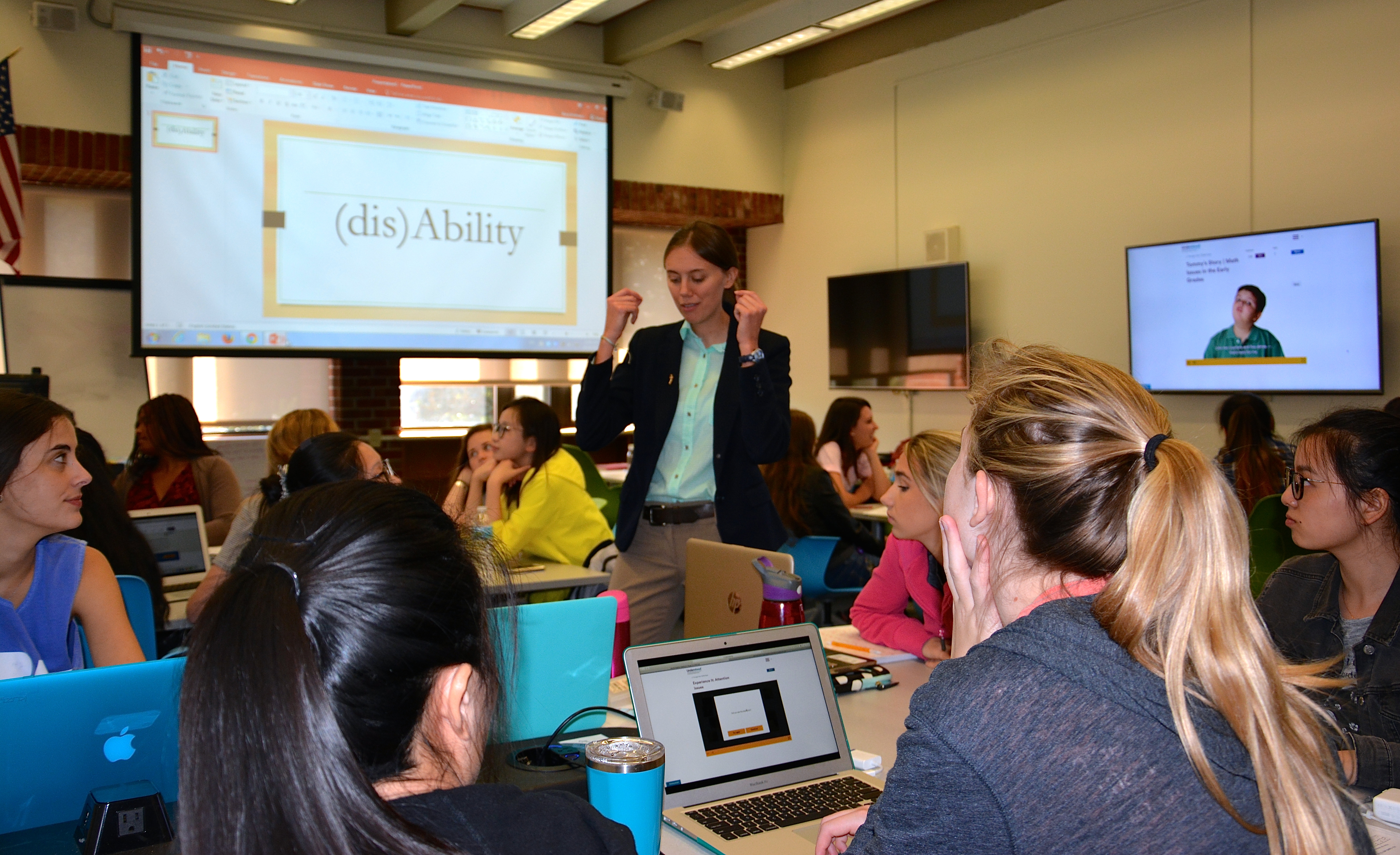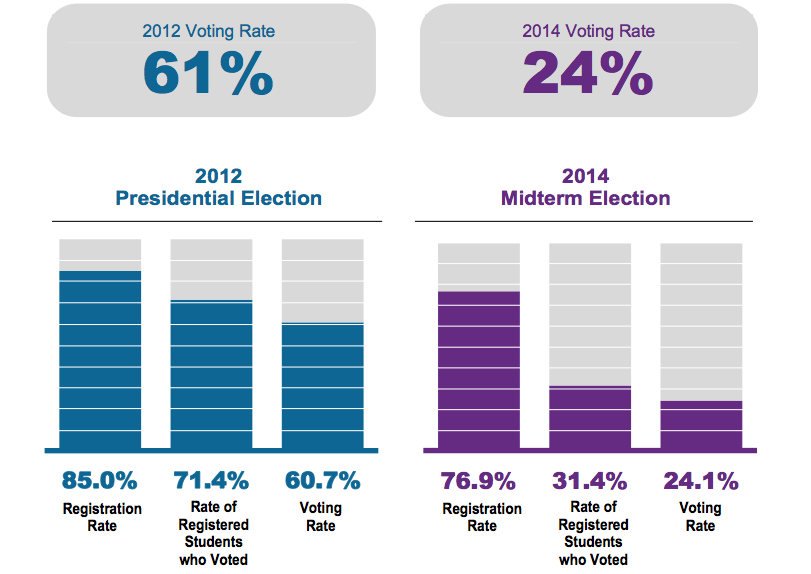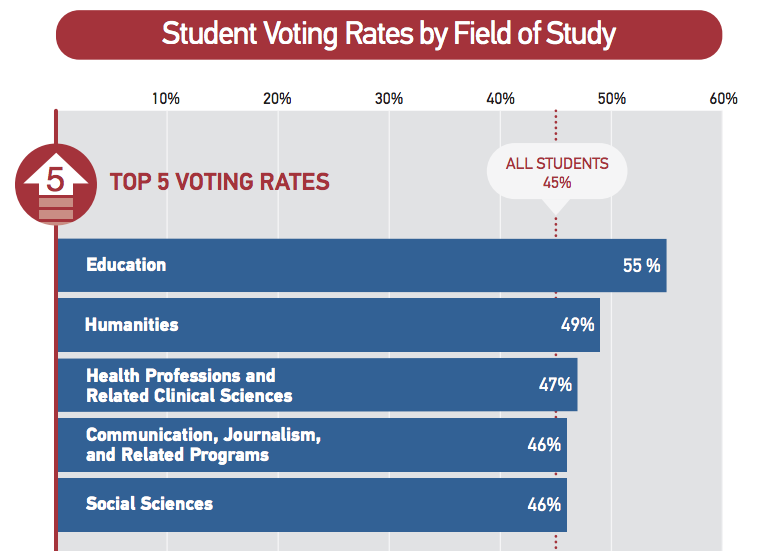https://education.ufl.edu/news/files/2020/02/Erica-McCray-e1581961062606.jpg
529
768
katelynvogt
https://education.ufl.edu/news/files/2019/07/News-1-300x65.png
katelynvogt2020-02-17 12:11:552020-02-17 12:38:29Erica McCray ushers in the new decade as director of the School of Special Education, School Psychology and Early Childhood Studies
https://education.ufl.edu/news/files/2019/09/341be775-0a0e-4362-a55e-bfca210a16db-1-e1569857652351.jpg
286
400
kevincoulson
https://education.ufl.edu/news/files/2019/07/News-1-300x65.png
kevincoulson2019-09-30 10:50:042019-10-02 11:43:49New Faculty | Fall 2019
labellebrittany
https://education.ufl.edu/news/files/2019/07/News-1-300x65.png
labellebrittany2019-03-18 16:33:572019-08-21 14:42:13Irving and Rose Fien Endowed Professor works to rebuild Florida as a national leader in bilingual education
labellebrittany
https://education.ufl.edu/news/files/2019/07/News-1-300x65.png
labellebrittany2019-03-05 16:10:352019-08-06 13:39:15Lastinger Center Listening Tour
https://education.ufl.edu/news/files/2019/08/Badge-OnlinePrograms-GradEducation-2019-300x279.png
279
300
labellebrittany
https://education.ufl.edu/news/files/2019/07/News-1-300x65.png
labellebrittany2019-01-15 00:16:122020-09-21 13:38:11UF College of Education reclaims ranking as best in nation
labellebrittany
https://education.ufl.edu/news/files/2019/07/News-1-300x65.png
labellebrittany2018-12-19 15:30:532019-08-06 13:43:01Top Stories of 2018
labellebrittany
https://education.ufl.edu/news/files/2019/07/News-1-300x65.png
labellebrittany2018-12-13 14:46:052019-08-06 14:20:42Farewell to Departing Faculty
labellebrittany
https://education.ufl.edu/news/files/2019/07/News-1-300x65.png
labellebrittany2018-11-01 15:01:482019-08-06 13:46:01Christopher Busey fosters national civic dialogue at annual CUFA conference
https://education.ufl.edu/news/files/2019/08/CenturyTowerMoon.jpg
400
600
labellebrittany
https://education.ufl.edu/news/files/2019/07/News-1-300x65.png
labellebrittany2018-10-30 13:01:152019-09-17 15:13:36University of Florida Initiative Seeks Solutions to Critical Challenges Affecting Society
labellebrittany
https://education.ufl.edu/news/files/2019/07/News-1-300x65.png
labellebrittany2018-10-30 12:14:262019-08-06 13:47:30Donielle Geoffrion Receives FACES Graduate Student Scholarship Opportunity
labellebrittany
https://education.ufl.edu/news/files/2019/07/News-1-300x65.png
labellebrittany2018-09-12 18:45:132019-08-06 13:48:58Alisa Houseknecht awarded SACES Research & Best Practice Grant
labellebrittany
https://education.ufl.edu/news/files/2019/07/News-1-300x65.png
labellebrittany2018-08-29 20:22:582018-08-29 20:22:58Study Abroad in the Republic of Ireland
https://education.ufl.edu/news/files/2019/07/News-1-300x65.png
0
0
labellebrittany
https://education.ufl.edu/news/files/2019/07/News-1-300x65.png
labellebrittany2018-08-20 18:59:372019-08-06 13:49:24UF College of Education Earns Top Ranking
https://education.ufl.edu/news/files/2019/07/News-1-300x65.png
0
0
labellebrittany
https://education.ufl.edu/news/files/2019/07/News-1-300x65.png
labellebrittany2018-04-24 20:02:432019-08-06 13:57:482018 Outstanding Young Alumni - Impacting Others Through Service in Education
labellebrittany
https://education.ufl.edu/news/files/2019/07/News-1-300x65.png
labellebrittany2018-03-20 00:01:192020-03-03 11:09:16UF College of Education jumps five spots in national rankings; still No. 1 in Florida, and best in Southeast among publics
https://education.ufl.edu/news/files/2019/07/News-1-300x65.png
0
0
labellebrittany
https://education.ufl.edu/news/files/2019/07/News-1-300x65.png
labellebrittany2018-03-15 15:50:092019-08-06 14:00:09COE-STL host conference of education historians; outsiders welcome
https://education.ufl.edu/news/files/2019/07/News-1-300x65.png
0
0
labellebrittany
https://education.ufl.edu/news/files/2019/07/News-1-300x65.png
labellebrittany2017-10-13 20:03:342019-11-08 12:18:05Novelist's $3M gift for literacy initiatives kick-starts college's capital campaign
https://education.ufl.edu/news/files/2019/07/News-1-300x65.png
0
0
emmasimkin
https://education.ufl.edu/news/files/2019/07/News-1-300x65.png
emmasimkin2017-09-28 20:03:512023-01-30 13:24:14Norman Hall Rehabilitation
https://education.ufl.edu/news/files/2019/07/News-1-300x65.png
0
0
https://education.ufl.edu/news/files/2019/07/News-1-300x65.png
2017-06-23 19:06:332019-08-06 14:09:55He will be missed: Professor Emeritus John Newell dies at 91
labellebrittany
https://education.ufl.edu/news/files/2019/07/News-1-300x65.png
labellebrittany2017-06-05 14:57:052019-08-06 14:11:53World’s largest education research group honors UF grad school dean
labellebrittany
https://education.ufl.edu/news/files/2019/07/News-1-300x65.png
labellebrittany2017-05-30 14:40:212019-08-06 14:12:28UF hosting leadership summit for Florida educators June 13-16
https://education.ufl.edu/news/files/2019/07/News-1-300x65.png
0
0
labellebrittany
https://education.ufl.edu/news/files/2019/07/News-1-300x65.png
labellebrittany2017-05-10 14:10:392019-08-06 14:13:47Can a 'nudge' prompt ex-students to re-enroll to earn a college degree?
labellebrittany
https://education.ufl.edu/news/files/2019/07/News-1-300x65.png
labellebrittany2017-05-08 13:57:562019-08-06 14:13:58UF Higher Ed. scholar named fellow to office charged with improving U.S. public service
labellebrittany
https://education.ufl.edu/news/files/2019/07/News-1-300x65.png
labellebrittany2017-05-01 13:34:582019-08-06 14:09:20How does stress affect middle schoolers with emotional and behavioral problems?
labellebrittany
https://education.ufl.edu/news/files/2019/07/News-1-300x65.png
labellebrittany2017-04-26 13:27:102019-08-06 14:08:56COE makes its mark at nation's largest gathering of education researchers
https://education.ufl.edu/news/files/2019/07/News-1-300x65.png
0
0
labellebrittany
https://education.ufl.edu/news/files/2019/07/News-1-300x65.png
labellebrittany2017-03-30 13:06:582019-08-06 14:07:465 Education Podcasts You Should Be Listening To
labellebrittany
https://education.ufl.edu/news/files/2019/07/News-1-300x65.png
labellebrittany2017-03-23 14:22:182019-08-06 14:05:10Hundreds Gather at UF’s International Conference on ‘Teacher Leaders’
https://education.ufl.edu/news/files/2019/07/News-1-300x65.png
0
0
labellebrittany
https://education.ufl.edu/news/files/2019/07/News-1-300x65.png
labellebrittany2017-03-14 13:44:502020-03-09 10:53:05College again earns top rankings from US News
labellebrittany
https://education.ufl.edu/news/files/2019/07/News-1-300x65.png
labellebrittany2017-02-01 14:05:402019-09-17 15:17:52PK Yonge School's Tony-winning musical tackles social justice issues with 1920s tunes, laughter
https://education.ufl.edu/news/files/2019/07/News-1-300x65.png
0
0
labellebrittany
https://education.ufl.edu/news/files/2019/07/News-1-300x65.png
labellebrittany2017-01-26 14:03:052019-08-06 13:52:13UF College of Education Ranked Among Best Programs for Veterans Nationwide
https://education.ufl.edu/news/files/2019/07/News-1-300x65.png
0
0
labellebrittany
https://education.ufl.edu/news/files/2019/07/News-1-300x65.png
labellebrittany2017-01-11 13:50:532019-08-06 13:39:27Newspapers: US News Ranks UF's College of Education Online No. 1
https://education.ufl.edu/news/files/2019/07/News-1-300x65.png
0
0
labellebrittany
https://education.ufl.edu/news/files/2019/07/News-1-300x65.png
labellebrittany2017-01-09 13:47:062019-08-06 13:38:17The Alligator: Lastinger Center in partnership to help train teachers in Colorado
https://education.ufl.edu/news/files/2019/07/News-1-300x65.png
0
0
labellebrittany
https://education.ufl.edu/news/files/2019/07/News-1-300x65.png
labellebrittany2017-01-09 13:45:242019-08-06 13:37:49COE repeats No. 1 ranking in US for online graduate degrees
https://education.ufl.edu/news/files/2019/07/News-1-300x65.png
0
0
labellebrittany
https://education.ufl.edu/news/files/2019/07/News-1-300x65.png
labellebrittany2017-01-09 13:33:002019-08-06 13:37:05The making of America's best online graduate program
https://education.ufl.edu/news/files/2019/07/News-1-300x65.png
0
0
https://education.ufl.edu/news/files/2019/07/News-1-300x65.png
2017-01-09 11:59:052019-08-06 13:30:11COE repeats No. 1 ranking in US for online graduate degrees
https://education.ufl.edu/news/files/2019/07/News-1-300x65.png
0
0
https://education.ufl.edu/news/files/2019/07/News-1-300x65.png
2017-01-09 11:59:042017-01-09 16:58:48The making of America's best online graduate education program
https://education.ufl.edu/news/files/2019/07/News-1-300x65.png
0
0
https://education.ufl.edu/news/files/2019/07/News-1-300x65.png
2016-12-01 12:07:062016-12-01 12:39:04Learning Gains from our Brains
https://education.ufl.edu/news/files/2019/07/News-1-300x65.png
0
0
https://education.ufl.edu/news/files/2019/07/News-1-300x65.png
2016-11-18 10:50:022016-12-12 21:22:39Counselor Ed. volunteers reflect on Orlando Pulse nightclub tragedy
https://education.ufl.edu/news/files/2019/07/News-1-300x65.png
0
0
https://education.ufl.edu/news/files/2019/07/News-1-300x65.png
2016-10-24 11:29:512016-10-24 11:32:13No waiting until 2017 for Room 2323 upgrades— thanks to gift
https://education.ufl.edu/news/files/2019/07/News-1-300x65.png
0
0
https://education.ufl.edu/news/files/2019/07/News-1-300x65.png
2016-09-30 12:18:022017-03-29 15:45:39National survey: UF education students score high marks in voter participation
Scroll to top

